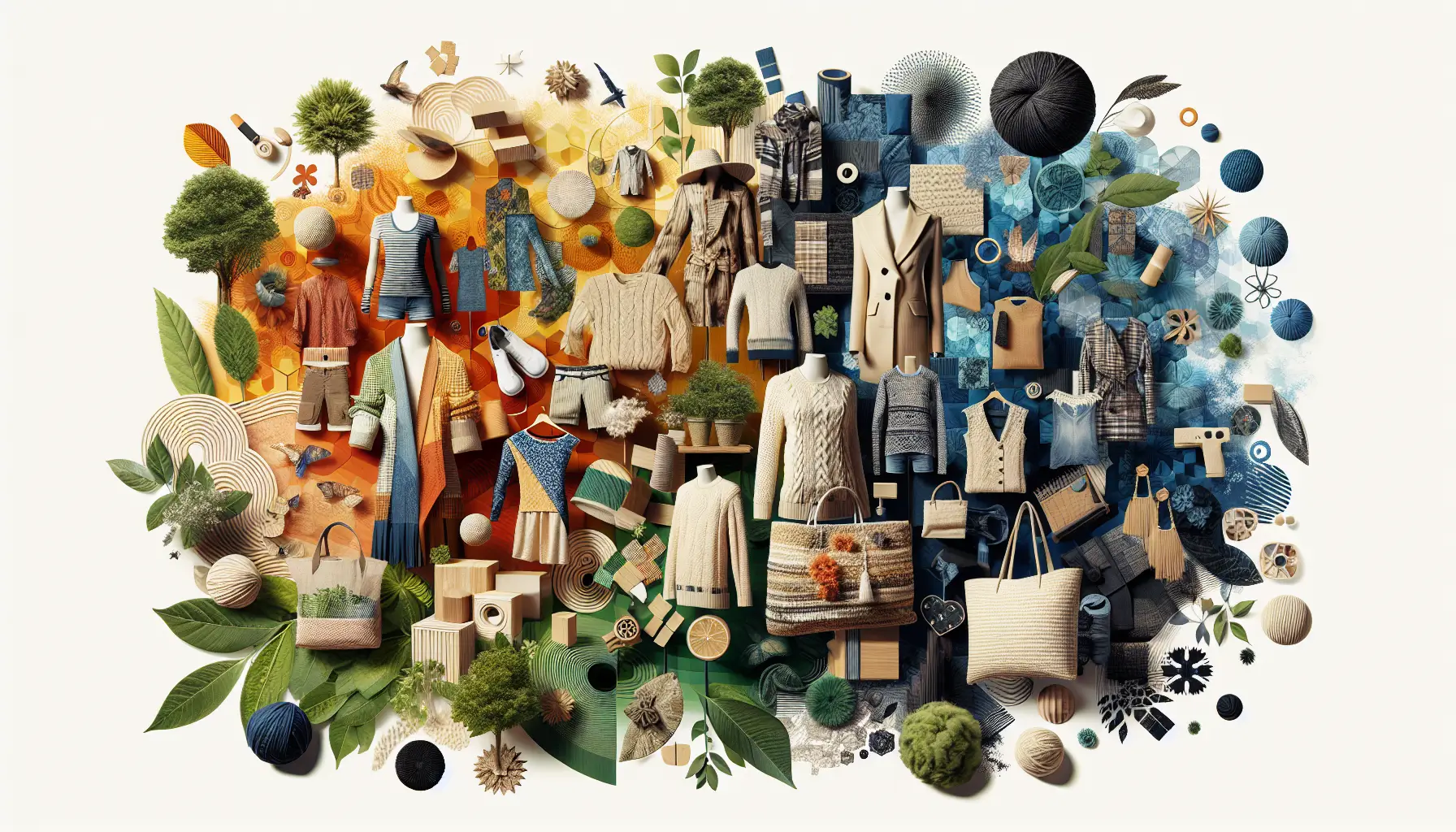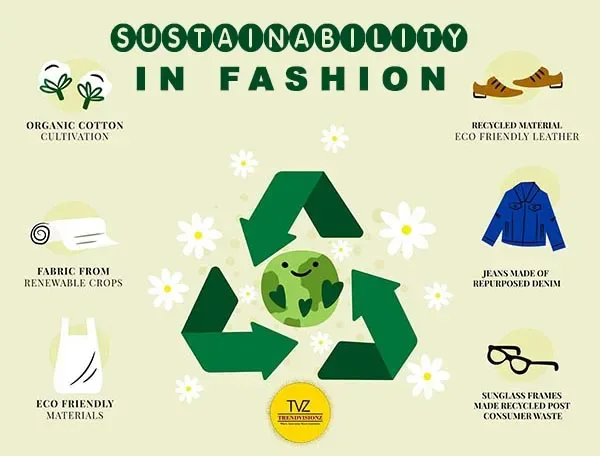Keep Ahead of the Curve by Discovering Innovative Style Patterns
In a sector as vibrant as fashion, staying ahead includes more than simply complying with existing patterns-- it requires an expedition of technology. Smart fabrics, as an example, are transforming garments into practical work of arts, while 3D printing is changing layout procedures with its personalized, waste-reducing capabilities. As sustainability becomes a keystone, innovations like eco-friendly materials and circular style techniques are improving environmental responsibility - Cape Town Sustainable Fashion. Furthermore, the merging of modern technology and fashion proclaims a new age of customer involvement. Just how, after that, can these arising patterns redefine the future of style, and what effects do they hold for brands looking for to grow in this developing landscape?

Accepting Smart Textiles
In recent times, the apparel industry has observed a transformative shift with the integration of clever textiles, an advanced development that mixes technology with fabric. This development represents not only a fusion of aesthetic appeals and performance but also a significant leap in the direction of sustainability and customization in vogue. Smart textiles, also understood as e-textiles, embed innovative electronic devices such as sensors and conductive strings within the textile, allowing garments to engage with the wearer or the atmosphere.
These fabrics are designed to keep track of physiological parameters, such as heart rate or body temperature, supplying real-time health analytics. Beyond health and wellness applications, clever fabrics are additionally being made use of for adaptive garments, which can alter shade or pattern in response to ecological stimuli, thus offering a vibrant style experience.
Additionally, the growth of energy-harvesting fabrics that generate power from motion or sunshine is leading the way for self-sufficient wearable modern technology. This development is interesting eco conscious consumers and developers aiming to decrease the ecological footprint of style. As study and growth in this field advancement, wise fabrics are expected to come to be significantly prevalent, reshaping the landscape of modern style with their multifunctional abilities.
The Surge of 3D Printing
Revolutionizing the manufacturing landscape, 3D printing has arised as a game-changer in the fashion business. This innovative technology has allowed designers to press the borders of creative thinking, generating elaborate and tailored garments that were previously unthinkable. By leveraging digital layout and additive production, 3D printing facilitates the creation of intricate geometries and patterns, allowing designers to experiment with new appearances and frameworks.
A remarkable advantage of 3D printing in vogue is its capability to create on-demand, decreasing waste and reducing inventory needs. This efficiency not just maximizes manufacturing processes yet also permits for quick prototyping, allowing developers to bring their visions to life in a shorter timeframe. Furthermore, 3D printing sustains modification to a degree unequaled by conventional techniques, offering unique styles and tailored fits tailored to individual customer choices.
The surge of 3D printing has likewise democratized fashion, making it easily accessible to emerging designers who can now fabricate premium pieces without significant economic investment in standard production facilities. As innovation continues to advancement, the garment industry is poised to harness the complete capacity of 3D printing, checking out new materials and methods that will certainly redefine how style is developed and produced.
Sustainable Style Advancements
As the fashion business faces journalism need for environmental duty, sustainable fashion technologies have actually arised at the leading edge of transformative modification. The expanding understanding of environmental impact has actually sustained a change in the direction of even more eco-conscious practices and materials. Designers and brands are currently focusing on sustainability, incorporating methods that lessen waste and reduce carbon footprints.
One substantial development this content is the rise of circular style, which stresses recycling and upcycling to prolong the lifecycle of garments. This strategy not only reduces waste however also encourages consumers to take on an extra conscious method to apparel consumption. In addition, the usage of lasting materials, such as organic cotton, hemp, and recycled polyester, has actually gained traction. These products need much less water and power throughout production, dramatically minimizing environmental influence.
One more breakthrough exists in the adoption of innovative dyeing methods that make use of waterless processes or all-natural dyes, consequently reducing the huge quantities of water and chemicals generally utilized in textile dyeing. Moreover, innovations in biotechnology have actually brought about the production of lab-grown natural leather and textiles, using environmentally pleasant and cruelty-free alternatives to standard materials. Via these pioneering efforts, the garment industry is making purposeful strides towards an extra sustainable future.

Tech-Integrated Garments
Tech-integrated garments represents a cutting-edge fusion of style next and modern technology, reshaping just how people connect with their apparel. This cutting-edge domain name is marked by the incorporation of smart fabrics and embedded electronic components, enhancing both capability and visual appeal. From physical fitness trackers embedded in sportswear to heated jackets controlled through smartphone apps, tech-integrated clothing provides customers unprecedented comfort and adaptability.
Pioneering brand names are driving this fad, concentrating on developing garments that reply to environmental stimuli or user commands. For instance, some garments can change shade or pattern in response to temperature level changes, while others incorporate biometric sensors to keep track of wellness metrics like heart rate or anxiety degrees. The smooth integration of modern technology into textiles also prolongs to environmental sustainability, with initiatives to develop self-cleaning textiles or garments that adapt to climate condition, thus reducing the need for multiple layers.
Moreover, the development of wearable modern technology is not just restricted to apparel yet includes accessories like watches and glasses, additional expanding the extent of tech-integrated fashion. As the industry proceeds to innovate, the capacity for customization and personalization in clothing expands, using customers distinct, tech-enhanced style experiences that satisfy their individual demands and choices.
Future of Virtual Fashion
In the last few years, the future of digital style has become a transformative force within the industry, leveraging developments in electronic innovation to redefine how style is produced, experienced, and consumed. By integrating increased fact (AR), digital reality (VR), and 3D style devices, designers can now craft immersive and interactive experiences that go beyond traditional fashion borders. Online style enables the development of garments that exist solely in digital atmospheres, supplying endless opportunities for development without the limitations of physical manufacturing.
This digital shift not only presents possibilities for innovative expression but additionally addresses sustainability problems integral in conventional fashion practices. Cape Town Sustainable Fashion. By eliminating the demand for physical sources, online fashion decreases waste and decreases carbon footprints. Furthermore, the surge of digital fashion straightens with the enhancing customer need for distinct and customized experiences, as digital garments can be personalized and customized to private choices easily

Verdict
The style industry's future depend on the integration of sustainable practices and ingenious innovations - Cape Town Sustainable Fashion. Smart fabrics and tech-integrated apparel are enhancing performance, while 3D printing supplies possibilities for personalization and waste reduction. Sustainable style, with environmentally friendly products and round approaches, demonstrates a commitment to ecological stewardship. Additionally, digital fashion is positioned anonymous to redefine customer interactions. Adjusting to these patterns is vital for brands looking for to continue to be competitive and pertinent in this quickly developing landscape.
In recent years, the fashion sector has actually experienced a transformative shift with the assimilation of wise fabrics, an advanced advancement that mixes modern technology with textile.As the fashion sector grapples with the pressing requirement for environmental duty, sustainable fashion innovations have emerged at the center of transformative change.In current years, the future of online fashion has actually arised as a transformative force within the industry, leveraging developments in electronic modern technology to redefine how fashion is created, experienced, and taken in. The surge of digital style aligns with the raising consumer demand for unique and tailored experiences, as online garments can be customized and customized to specific choices with ease.
The style market's future lies in the integration of ingenious technologies and lasting practices.